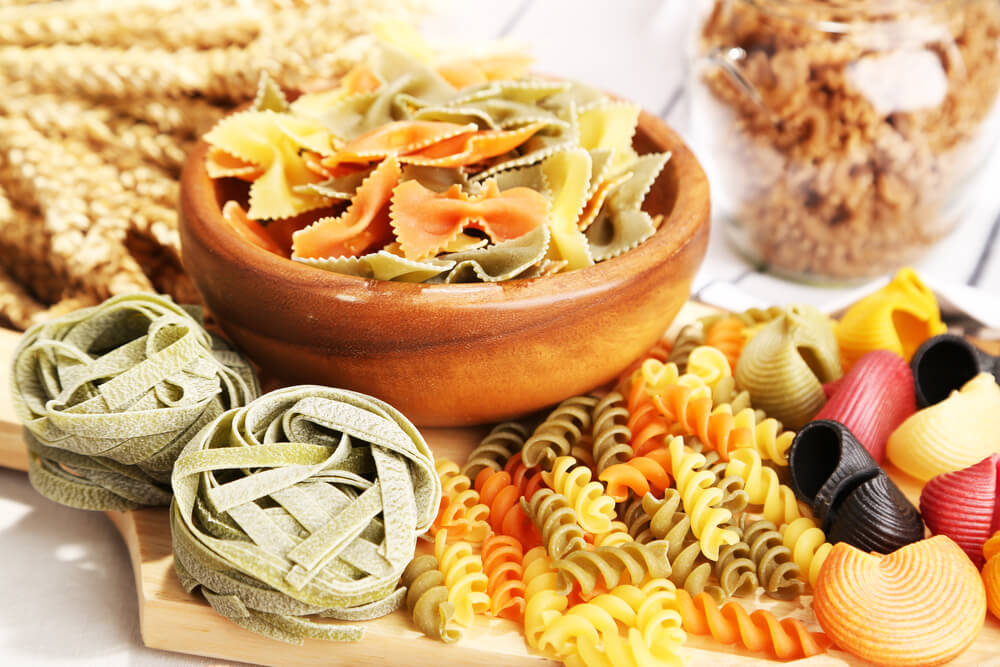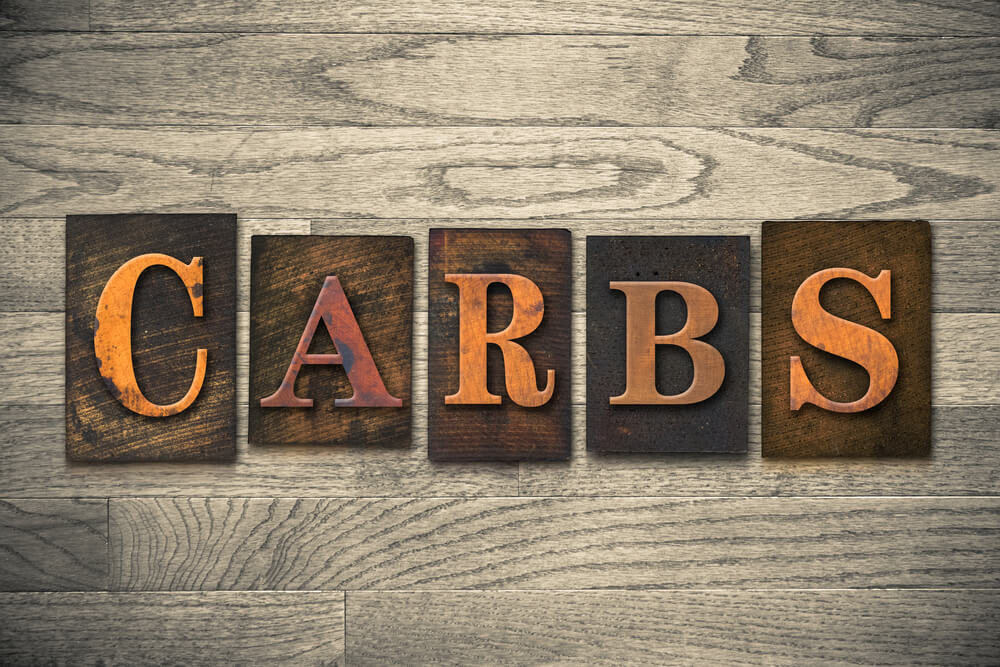
If you’ve heard anyone talk about nutrition in the last 10 years, you’ve heard a lot of stuff that doesn’t make sense. Here’s everything you need to know about carbs.
Carbohydrates are often painted as the bad guy of diets and healthy living. But is this reputation really justified? The answer is a surprising no. The reason so many think that carbs are bad is because we have been mislead and have a strong misunderstanding of the role carbs play in our body’s day to day function.
Basics of Carbs
They are essentially bundles of energy that the body can use. They’re found in many of the foods we eat every day like fruits, vegetables, grains and dairy products. The body takes the molecules of carbs and makes them into glucose, which is our main energy source.
Glucose is a sugar that can either be used by the body for day-to-day functions, or it can be stored for use later when available energy is lacking. Carbohydrates are necessary for the body to continue functioning properly. But, not all carbs are created equal. This is where many people get confused because they associate carbs with fat storage. They forget that it’s only unused carbs that get converted into fat.
According to the U. S. Department of Agriculture (USDA) Dietary Guidelines, carb sources that also have a lot of fiber, including those found in veggies, fruits and whole grains are the best for the body. Why? They are harder to break down and last longer in the body.
Carbohydrates that have come to be referred to as bad are the ones that have been processed with some parts removed and then had extra sugar added to increase its sweetness. These carbs are everywhere. Common examples of these refined carbs (or processed carbs) include white bread, cookies, cakes, ice cream and candy. Some consider cutting out carbs completely. But, it’s better to just be smart with how you consume carbs.
Best Way To Consume Carbs
It’s important to have plenty of fresh fruits and veggies in your diet. And, it’s equally important to mix it up and add a wide variety of foods to your diet. Whole grains are a wonderful source of healthy carbs and are much better for you than white flour and sugar foods.
Getting good carbs in your diet every day is simple. Start with some whole-grain cereal and a piece of fruit for breakfast. Have a healthy lunch and dinner of your choice. Add an additional serving of fresh veggies at each meal for some good fiber and carb combos.
For snacks between meals, make sure you have healthy fare right at your side. Cut up veggies and fresh fruit. You could also eat some whole grain cereals and trail mix. Sub beans for meat once every week and use fruit as your dessert.
Know The Carb Guidelines
U.S. guidelines suggest no more than 65% of your daily caloric intake should come from the carbs you eat. At the official USDA website, your age, sex, height, weight and activity levels are used to determine exactly how many calories you need to consume from carbs each day. This can be a great way to get started on the right foot when it comes to your diet plans.

The Different Types of Carbs
Many people are surprised to learn that there are actually three main types of carbs. They are starches, sugars and fiber. This is why when it comes to carb content, so many people are confused when trying to figure out what foods to eat and which to avoid.
On the nutrition label, you’ll often find the term total carbohydrate. This figure actually includes all three types of carbs. For those who count carbs or who want to track how many carbs they’re eating each day, it is the total carbs you need to consider, not just sugar or fiber figures. Once you have the right figure, you can begin to plan your daily and weekly menu and begin cutting It out and eating healthier.
Starch
Foods that have a lot of starch in them include: Some veggies like peas, corn, lima beans and potatoes. Dried beans, lentils, kidney beans and black-eyed peas also contain a good amount of starches. They can also be found in healthy amounts in grains like oats, barley, and rice.
Sugar
Sugar is the type of carb most people think of when they look to cut It out. You may also hear sugar called a simple carb.
There are two main types of sugar. There’s the naturally occurring form like the carbs found in milk or raw fruit. There’s also the added or processed sugars like those found in canned fruit and sugary desserts. Of course, natural is better. Processed is the worst type for your body.
Fiber
Fiber is the indigestible part of plant foods. Good sources of dietary fiber can be found in almost all beans and legumes, many fresh fruits and veggies, all whole grains, as well as many nuts and natural oils.
Want A Carb-Free Diet?
Many people try to cut carbs completely. Today, thanks to new research and a better understanding of It and how the body uses them, most nutrition experts do not advise having a carb-free diet. According to health and diet experts and trainers, in the long run, low-carb diets are not as effective and tend to set people up for failure.
Nutritionists agree that most people crave It. If you cut them out of your diet, you’ll only crave them more. The key focus needs to be more on the quality of the carbs you choose and how much of them you have in your diet.
This Is How Much You Should Be Getting
The new recommendation for healthy consumption of carbs is that men 50 or younger should get 38 grams of fiber a day. Meanwhile, women of the same age range should get 25 grams of fiber a day. Because the body requires fewer calories as it gets older, men over age 50 are advised to consume 30 grams and women 50 and older should get 21 grams of fiber a day.
Carbs are essential because they help keep your body fueled and functioning. You never want to have a meal without at least some carbs. A meal of all protein isn’t good for your body because it’s not ideal for keeping your body functioning.
Our liver stores blood sugar, and at times when the body doesn’t get food or does not get enough carbs to turn into energy, our liver puts out extra sugar into our bloodstream so that the body can access it and use it.
If you only get carbs at one point of the day, your liver is constantly working as it tries to maintain the right levels of blood sugar. Not having consistently appropriate amounts of carbs throughout the course of the day could increase your risk for developing diabetes.
Why?
This happens because your blood sugar is constantly fluxing and being thrown off kilter throughout the day.
So you shouldn’t fully cut carbs from your diet or you’ll make your liver and other organs stressed from trying to compensate from the lack of carbs. With that said, you also don’t want to overeat carbs either. It is all about balance and knowing when to eat carbs.
When To Eat This
Many people today think that carbs are what makes them fat. The truth is that they don’t. It becomes an issue when you eat too many of them or consume the wrong types in excess. Of course, too much of any good thing can be a bad thing.
The reality is, for most people, carbs are a healthy and very necessary addition to their daily diet. One of the best ways to stay on top of your carb consumption is by knowing what to eat and when to eat it. What follows are some of the most common questions people ask when it comes to these little molecules of energy.
What Kinds Of Carbs Should I Choose To Eat Throughout The Day?
Your diet needs to include those carbs that have some nutrient value in them. Foods with a good bit of fiber in them are going to digest more slowly, thus keeping you feeling full for longer.
This is why a sweet potato is a better choice over white rice. It has a higher nutrient content and will also keep you feeling satisfied for longer. Having some fresh berries would be a better choice for a snack than a candy bar for the same reasons. Make smart choices and look for foods that have carbs paired with other nutritional perks in them. Doing so will mean your diet will be healthier!
Should I Change Up How Many Carbs I Eat?
Think about portion sizes. Then tweak and adjust according to what you’re doing. Your activity level and health will determine at least partly how many carbs you need.
If you’re working on dropping unwanted weight, you may be better served by sticking closer to the 45 grams of carbs recommended per meal. If you’re an athlete or someone who is in the gym for several hours every day, then you could have closer to 60 grams per meal.

Should I Eat Before An Intense Workout?
Definitely. Grabbing yourself a healthy, yet carb-rich snack that comes with protein and some fiber before you exercise can be a great way to give yourself the energy you need for your workout.
If you are going to eat a meal, then make sure it is one that you’ll be able to digest within 60 minutes prior to your workout. Some good options would be a small bowl of oatmeal, a handful of almonds, a tall glass of milk or a banana. You don’t want to eat something with a lot of fat.
Why?
Fat takes the longest to digest and will just add more for you to burn off during your workout routine.
Foods to Eat and Avoid
Now that you understand the basics of carbs, what our body needs them for, and why we must have them every day, here are some ideas for foods to eat and foods to avoid at each meal.
Breakfast
Eat: Whole fruits and grains. Get a good mix of carbs and fiber for hunger control and nutritional balance.
Avoid: Sugary cereals. Simple sugars provide a quick burst of energy, but it’s often turned into fat and stored rather than used.
Snack
Eat: Nuts and healthy oils. Peanuts, almonds, cashews and similar nuts have a lot of protein, some carbs and also added fiber. They can also be a healthy snack!
Avoid: Flavored lattes and sodas. Coffee by itself is fine. But, those flavor shots are pure sugar. Stay away!
Lunch
Eat: Whole grain bread. This offers you fiber that slows digestion and helps you feel full longer, thus limiting the urge to snack and binge eat.
Avoid: Noodle soups. The white pasta noodles and thin broth often outweigh the healthy aspects of soups. These also tend to leave you feeling hungry within hours.
Dinner
Eat: Brown rice. Easy to digest, healthy and very affordable, this is one of the best ways to add good sugar and fiber to your daily diet.
Avoid: Saucy sandwiches. They may taste good, but all that sauce is often sweetened with sugar and other additives that are not at all healthy or good for you.
Conclusion
The reason so many think that carbs are bad is because over the years we have been mislead about their value. It plays a very important role in our body’s day-to-day function. Be sure to choose healthy carbs. Remember, they are not the enemy and can indeed be a valuable ally on the journey to healthier living.
Terry
Latest posts by Terry (see all)
- How Important Are Net Carbs For Building Huge Muscle? - Apr 28, 2017
- The Matt Damon Workout Explained - Apr 27, 2017
- Watercress – Benefits And The Best Way To Consume It - Apr 26, 2017











[…] By Terry Asher […]